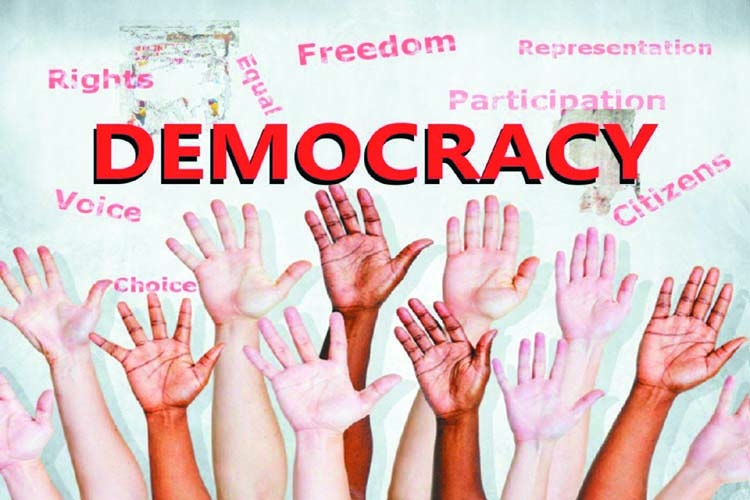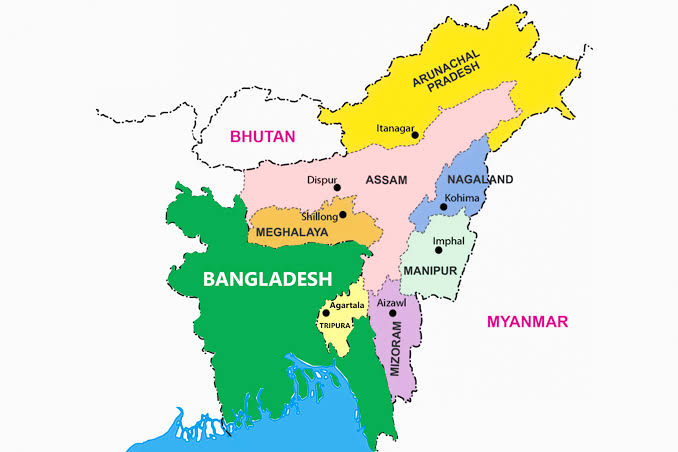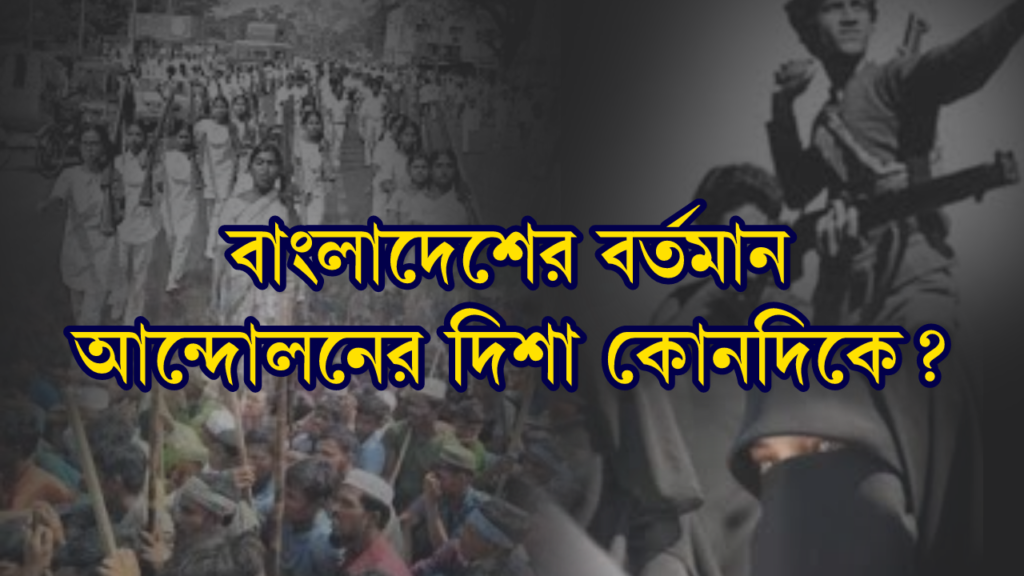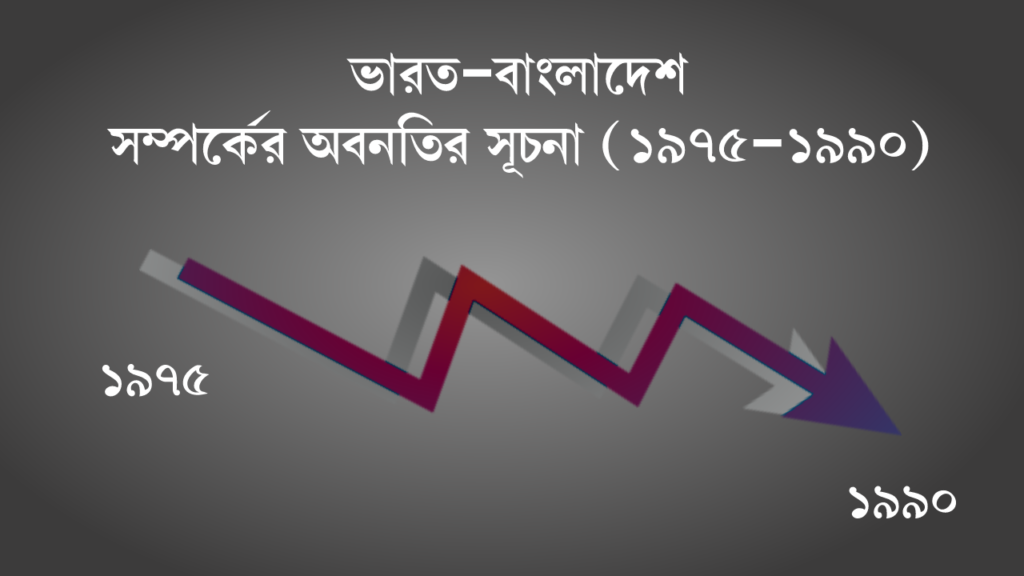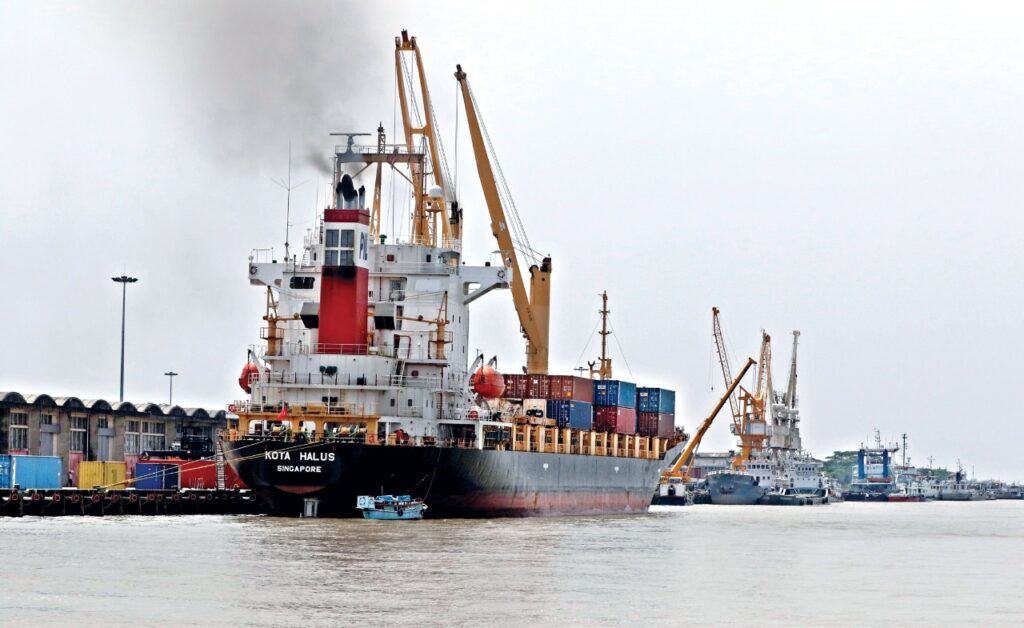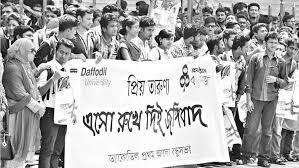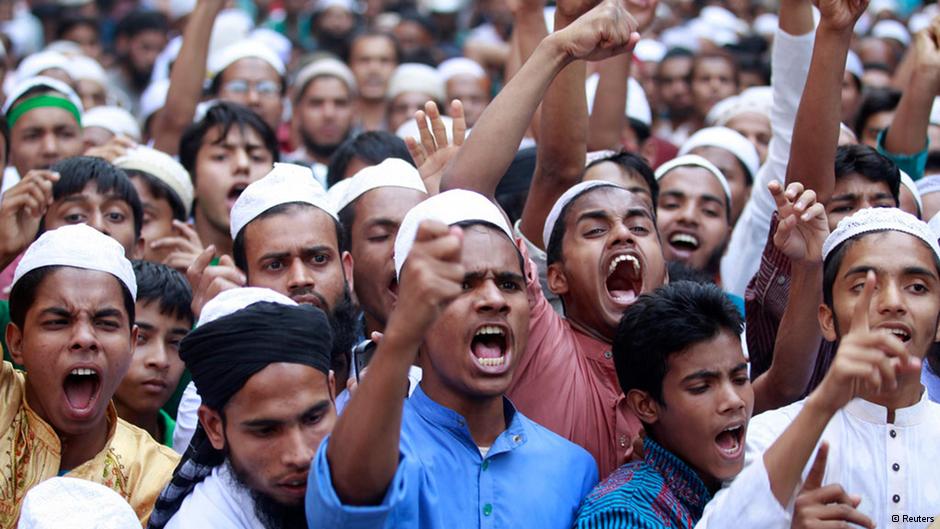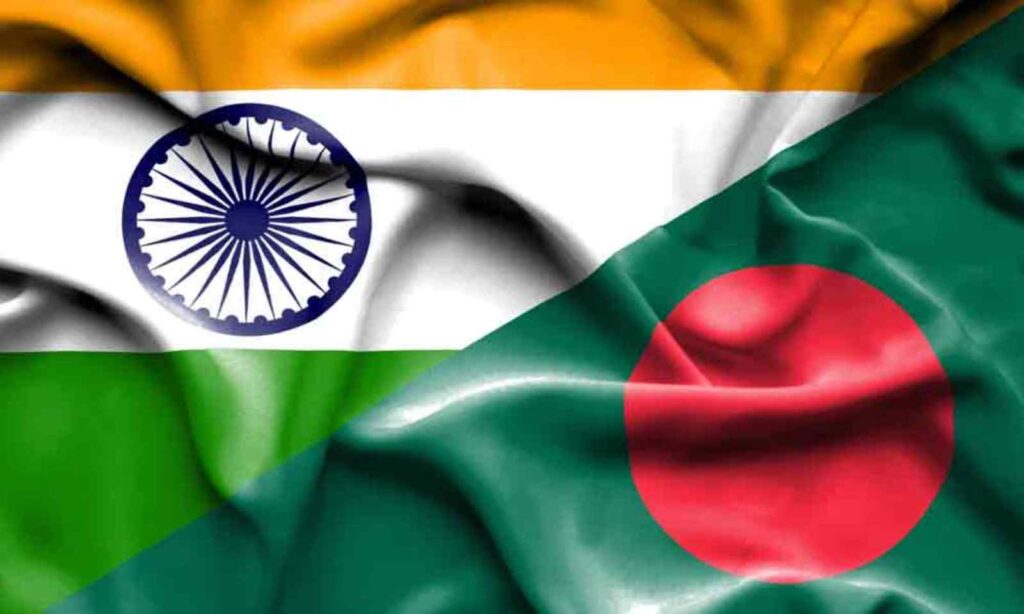Declining Democracy in Bangladesh
Sudip Kumar Acharya The functioning of democracy in Bangladesh has been witnessing a chequered journey since 1971. Simply, the swinging democratization process in Bangladesh is continuing till date. We know that, from time of its independence, Bangladesh has been submerged in critical internal contradictions. The Bengali national identity by which the freedom struggle of Bangladesh got a determined character did not proceed further because Bengali cultural traits were replaced by Islamic cultural characteristics and maligned by Islamization process especially after Mujib’s assassination on 15th August 1975. Though 1972 Constitution of Bangladesh asserted the pride of Bengali identity in place of Muslim nationalism, but majority of ministers did not care much of being Bengali or secular and inclined towards Arabized culture which was given major importance. The liberal Bengali culture became short lived and afterwards irrelevant. On the other hand, Mujib had a promising start with secular, social outlook but later he did not nurture democratic voice of his beloved nation and became authoritarian, proscribed opposition and introduced one party rule. The decay of democracy to some extent had already started during Mujib’s rule and his disastrous murder paved the way for prolonged military rule. The next ruler Major General Ziaur Rahman seized maximum executive power and accelerated the process of Islamization. A new sort of praetorian political culture decorated with radical Islam grasped the domestic political milieu of the country. It was the most dangerous phase against democracy when orthodoxy was assembled with politics and state policy of secularism was vaporized from objectives of state through undemocratic politics. In a nutshell the political culture of Bangladesh has changed since long after the end of Mujib regime. The revengeful politics and minority persecution were parallelly introduced. In time of Ziaur Rahman steps were taken to demoralize the constitution through shrugging off the ideals of freedom struggle and Pakistan oriented communal values. So, Islamization of Bangladesh was a natural phenomenon and became a threat to Hindu, Buddhist and Christian minority communities. We have to remember that in its Constitution, Bangladesh has state religion of Islam The dictator President Chief Marshal Law Administrator (CMLA) Hossain Mohammad Ershad in the year 1988 forcibly through constitutional amendment introduced state religion in Bangladesh. Earlier Ziaur Rahman also amended the Constitution and four basic principles of 1972 Constitution (Nationalism, Socialism, Democracy and Secularism) were diluted and `Bismillahi-Rahman-er-Rahim’ was adjoined before Preamble. Moreover, a new sort of Bangladeshi identity had been incorporated which was fully covered with Islamic aroma, Religion had taken hegemonic role in Bangladesh and diluted democracy. In 1991, ten per cent of religious minority except Islam existed in the country but in 2001 the proportion decreased steadily. The Chittagong Hill Tract (CHT) was destroyed many times by state sponsored various forces The local ethnic groups are outnumbered due to Muslim infiltration patronized by state itself. Consequently, tribals migrated from Bangladesh and sheltered into India. The CHT leaders formed resistance movement against the Government. Later Sheikh Hasina signed peace accord with P.C. J. S. S. but even after a long time the accord not fully implemented. The forced eviction of minorities from land, rape of minority women and children had drawn attention and severe criticism from global human rights groups. We can add another pointin this regard that this overt Islamization has led to a definite shift towards radical Islamic nationalism. Besides, the rising of Jamaat in the last decades of 20th and early decades of 21st century had a fatal impact on the political culture of Bangladesh. Within a short span of time Jamat became the largest Islamic Party in Bangladesh and contested in national elections. The Jamat-e-Islami’s ideology has spread gradually. Jamaat leaders became ministers in the BNP led regime of Prime Minister Begum Khaleda Zia (2001-2006). In 2008, it got nearly four lakh votes which is four percent of total votes. The resurgence of theocratic tendency and the growing animosities between Begum Khaleda Zia and Sheikh Hasina have weakened the republican credentials. The resurgence of Islam at the direct behest of the state especially under the time of Begum Zia, made serious challenges towards democratic consolidation. Moreover, radical Islam is connected with worldwide Jihadist network. On the other hand, the personality-prone politics fanned the flame of feudal tendencies in democracy. The transparent electoral process run by different caretaker Governments did not bring much instability or political maturity. The tendency of extreme religious awakening namely by the radical Islamic groups, Ansarullah Bangla, or J.M.B, in Bangladesh affect foreign relations with immediate neighbours. India has alarmed Bangladesh several times about the fundamentalist groups which sheltered in Bangladesh as they are dangerous for Indian security scenario. Except that, many a times Indo-Bangladesh relations became worse with different issues like trade disputes, border disputes, Ganges River water sharing, migration, insurgency, anti-Hindu and anti -tribal violence, confusions regarding Gas exports. In most of the cases fragile condition of democracy in Bangladesh has been responsible for such hindrances in the way for smoother bilateral relationship. As an instance the acute anti-Indian rhetoric in Bangladesh can be regarded as a bulwark against strong relations. The opportunist political tendencies of Bangladesh are also an interesting section like most of the third world democracies in the world. It is astonishing that Sheikh Hasina joined hands with notorious dictator and C.M.L.A. Hussain Muhammad Ershad and his Jatiya Party while Begum Khaleda Zia had her coalitions with radical Islamist group Jamaat-e-Islami. Nothing is impossible in the dance of democracy in Bangladesh. Indeed, the growth of various religious parties such as the Islami Oikyo Jote Front is the output of Islamization and its wider acceptance in Bangladesh. Hence, communal harmony and tolerance are becoming invisible in Bangladesh. Though different sections of liberal progressive intelligentsia have endeavored to regain the place of non-communalism and secularism but unable to receive enough support from the common public. So these above negative factors have weakened democracy and political culture in Bangladesh. Eventually, the anti-democratic forces are flourishing in Bangladesh and the insecurity of the minorities is rising. The …

